Press Release
This Elections, Vote For Children!
CRY asks voters to vote for children’s rights this Elections
New Delhi, April 13, 2009: With the nation going to vote in three days, CRY (Child Rights and You) has directly communicated with all political parties across the country a list of issues that parties need to keep top of mind. The Child Rights Manifesto (below) lists the issues that are affecting children’s lives in India, but are conspicuously absent from the pre-election agenda of political parties.
“Like in the last Lok Sabha Elections in 2004, we have been watching the political arena closely to see if children’s issues are reflected in the agenda of candidates,” said education activist and CRY Director Ila Hukku. “We find that despite the large number of children’s organizations pointing out this noticeable gap, political parties continue to ignore the children of India and their issues. So we are now going directly to the parties, knocking on doors to remind candidates that the ultimate winners should be children.” CRY representatives will also be speaking to candidates directly in face to face meetings
“As the nation goes to vote, we are reminding voters that one fourth of the country – as many as 400 million citizens – will not vote because they are children. As voters and candidates, we are charged with the responsibility to see to it that their interests do not slip off the political radar,” said Dipankar Mazumdar, Director, Youth & Development Support.
Without the right to choose their political leaders, children cannot directly ensure that
- 70 of every 1000 children born do not die each year
- Every 2nd child under 5 is not malnourished
- All children are in school and complete formal schooling :
- the 52% children who are out of school are enrolled and ensured complete formal schooling
- All children have access to adequate nutrition and equal opportunities
- Children are protected from child labour, abuse and trafficking
But as a Voter, YOU can!
Child rights can only become central to a country’s political agenda if its people choose to make it priority by ensuring government accountability to actualize the rights of children. Children must be looked on as equal citizens, entitled to equal rights. So when you vote this time, voice the rights of children - think of children, think of the promises we made to them in our Constitution to live a life of dignity that must include food, health, shelter, education, protection and play.
This election, CRY - Child Rights and You, seeks to raise public awareness on the state of children in India and unite people to stand up and demand what is right.
We call out to each and every one of YOU – India’s electorate - to hold representatives, contesting candidates, political parties and policy makers accountable for child rights by demanding specific non-negotiables from the government. Working with India’s children for the past 30 years, we know that we will bring in the day when all children are ensured their right to the childhood they deserve. And with your voice, we firmly believe we will.
Child Rights Charter
- The definition of a child to be universally applicable to all persons under the age of 18 years, thereby amending discrepancies in policies and acts affecting children.
Increase government expenditure on children. Specifically increase expenditure on education to 10% and health to 7% of GDP. - The government should ensure that all children age 6-18 years, without discrimination, should be in government formal, full-time schools that provide quality education in their own villages/hamlets/in the neighbourhood. . All children below 6 years should be in anganwadis
- The RTE Bill (Right of Children to Free and Compulsory Education Bill, 2008) should be redrafted to reflect the true sprit of children’s right to education. Privatization and commercialization of education to be discouraged.
- Immediate provision of nutritious mid-day meals in all primary schools and extension of this scheme to include all children including out-of-school children right through the year.
- Make available Integrated Child Development Services to all children under the age of six years, as per the Supreme Court order of November 2001.
- Complete prohibition on all forms of child labour across sectors including agriculture. All working children and child labourers to be brought into the formal school system with special emphasis on girl children who are engaged in household work and child-care.
- Revision of the National Policy for Children (1974) to make it more comprehensive and in line with the Constitution and the United Nations Convention on the Rights of the Child.
- Formulate and implement a comprehensive rights-based policy on food security for all with extensive legal safeguards, in order that no child goes to bed hungry and no child is born underweight and stay undernourished. The criteria for defining the poverty line and therefore coverage under the Public Distribution System (PDS) for food should be revised. Universalize the PDS to cover all families.
- Enactment and implementation of effective legislation for preventing and prohibiting sexual abuse of children and trafficking of children
- Education to be inclusive so that children with disabilities are also ensured equal opportunities to be integrated into mainstream society
- For children living in conflict-affected areas, ensure children’s fundamental rights, including the right to protection, to education and to live with their family.
The demands above can be effectively realised only when larger issues, closely linked to children’s rights, are ensured. Some of these are:
- Migration and displacement lead to disruption in children’s development, access to education and health facilities making them vulnerable to exploitation and abuse. To prevent this it is critical to
- Prevent lop sided development that induces displacement of the marginalized communities.
- Alter Special Economic Zone Act 2005, preventing misappropriation of land, ensuring that the marginalized are not exploited. Put in place and implement an effective rehabilitation and resettlement policy
- Reformulate the Jawaharlal Nehru National Urban Renewal Mission (JNNURM) where the government shoulders its responsibility, rather than promoting Public-Private partnerships, in order to effectively uphold the housing rights of urban poor
- Implement land reform policies that will prevent migration and enable children to develop within their communities and geography.
- Withdraw the Coastal Management Zone (CMZ) Notification 2006 and Implement Coastal Regulation Zone (CRZ) 1991 as an Act so as to protect natural resources and the customary rights of coastal communities.
- Implement Forest Dwellers (Recognition of Forest Rights) Act 2006 which allows tribal communities greater control over forest resources.
- Repeal Petroleum, Chemical and Petrochemical Investment Region (PCPIR) Act 2003 which commodifies common property resources.
- Ensure living and equal wages for all adults to enable them to protect their children’s rights.
- Revision of the agriculture policy to protect small and marginal farmers
- Social security for all including unorganized workers be guaranteed and implemented to safeguard their rights.
- Ensure the right to housing for families so that every child has the right to safe space.
- Ensure that communalism be countered in order to prevent atrocities against minorities and ensure the basic rights for all. Establish secular practices in society and polity.
- Ensure that basic human rights are protected during counter-terrorism operations. The Indian government to stop supporting war efforts both within and outside its boundaries.
About CRY (Child Rights and You):
CRY – Child Rights and You earlier known as Child Relief and You – is India’s leading advocate for child rights. Over 30 years CRY has partnered with NGOs, communities, government, the media and is dedicated to mobilising all sections of society to eliminate the root causes of deprivation, exclusion, exploitation and abuse. For more information please visit us at www.cry.org

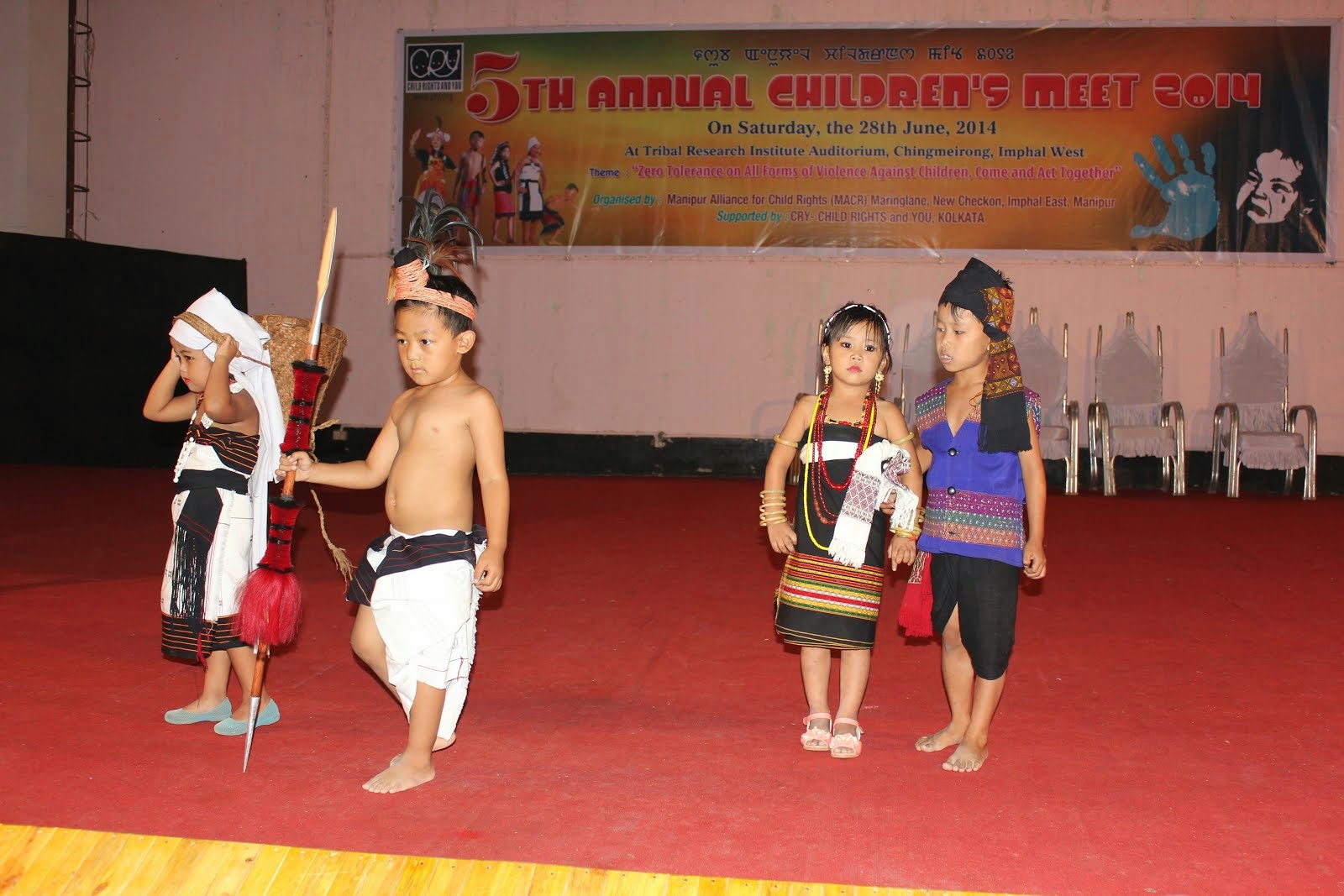

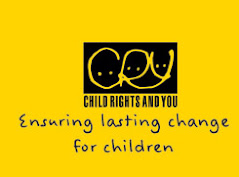





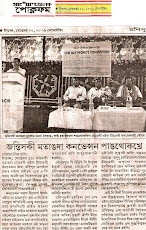

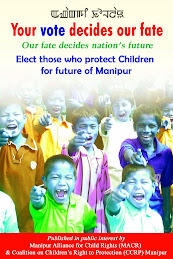





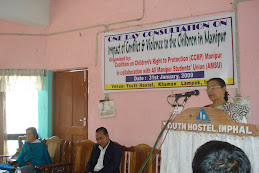
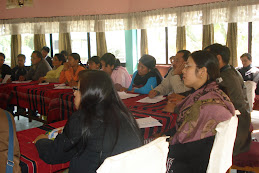
No comments:
Post a Comment